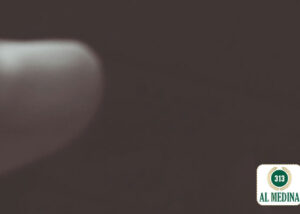Is everything found in a book of Seerah authentic?
Quran
Hadith
Islamic Text
Many narrations found in Seerah books are sound beyond doubt, since they are based on the Holy Quran or authentic Hadith. However, that is not the case for everything in a book of Seerah. Rather the scholars were more relaxed when it came to such narrations.
حَدَّثَنَا أبو عبد الرحمن مُحَمَّدُ بْنُ يُوسُفَ الْقَطَّانُ النَّيْسَابُورِيُّ، لَفْظًا، قَال: أَخْبَرَنَا مُحَمَّدُ بْنُ عَبْدِ اللَّهِ بْنِ مُحَمَّدٍ الْحَافِظُ، قَالَ: سَمِعْتُ أَبَا زَكَرِيَّا يَحْيَى بْنَ مُحَمَّدٍ الْعَنْبَرِيَّ يَقُولُ: سَمِعْتُ أَبَا الْعَبَّاسِ أَحْمَدَ بْنَ مُحَمَّدٍ السِّجْزِيَّ يَقُولُ: سَمِعْتُ النَّوْفَلِيَّ يَعْنِي أَبَا عَبْدِ اللَّهِ، يَقُولُ: سَمِعْتُ أَحْمَدَ بْنَ حَنْبَلٍ، يَقُولُ: إِذَا رَوَيْنَا عَنْ رَسُولِ اللَّهِ صَلَّى اللَّهُ عَلَيْهِ وَسَلَّمَّ فِي الْحَلاَلِ وَالْحَرَامِ وَالسُّنَنِ وَالأَحْكَامِ شَدَّدْنَا فِي الأَسَانِيدِ، وَإِذَا رَوَيْنَا عَنِ النَّبِيِّ صَلَّى اللَّهُ عَلَيْهِ وَسَلَّمَّ فِي فَضَائِلِ الأَعْمَالِ وَمَا لاَ يَضَعُ حُكْمًا وَلاَ يَرْفَعُهُ تَسَاهَلْنَا فِي الأَسَانِيدِ. (الكفاية في معرفة أصول علم الرواية)
Imam Ahmad bin al-Hanbal said, ‘When we narrate from the Messenger of Allah ﷺ regarding Halal and Haram, Sunan and Ahkaam (legal rulings), then we are strict regarding the chains of narration. And when we narrate from the Prophet ﷺ regarding the virtues of good deeds, and that which does not raise or establish legal rulings, then we are lenient regarding the chains of narration. (al-Khateeb al-Baghdaadi, al-Kifayah Fi Usool Ilm al-Riwayah).
In the above statement Imam Ahmad reflects the general attitude of scholars when it came to matters not related to legal rulings (and fundamental beliefs). They were much more relaxed in terms of what they accepted.
Such broad statements of authenticity cannot even be made with regards to Hadith books, which have far more rigour in authenticating narrations than books of history. But even they have strong, weak and sometimes fabricated narrations. So, it is certainly not correct to say that everything found in a book of Seerah is authentic.
والقصدُ ذكرُ ما أتى أهلُ السّيَرْ … بهِ، وإنْ إسنادُهُ لمْ يُعْتَبَرْ وليعلمِ الطالبُ أنَّ السّيَرَا … تَجمَعُ ما صحَّ وما قدْ أُنْكرَا
(نظم الدرر السنية)
Let the student understand that Seerah gathers what is authentic and what is rejected and the purpose is to mention what the scholars of Seerah narrated, even if the chains of narration are of no value. (Imam Zayn al-Deen al-Iraqi, Nadhm al-Durar al-Saneyah).
Imam al-Iraqi makes it clear that there are Munkar narrations in books of Seerah, which is well known to anyone who studies Seerah whilst giving consideration to authenticity.
Unfortunately there are too many people teaching and studying Seerah who do not consider authenticity, therefore they present everything as equally authentic, which is a clear error.
– Answered by Shaykh Noor ud-deen (04.01.2021)
See also:






